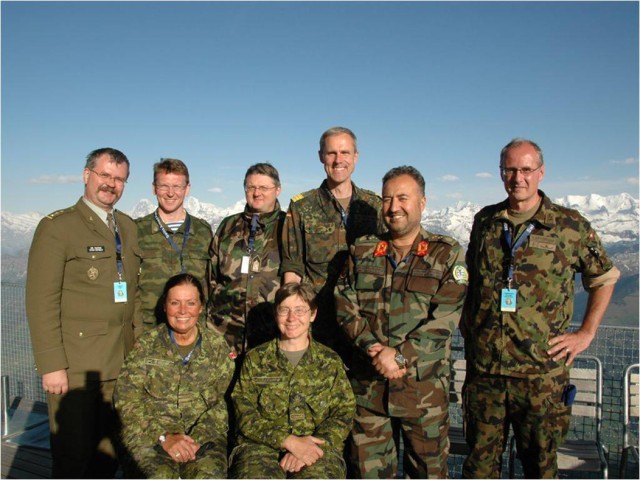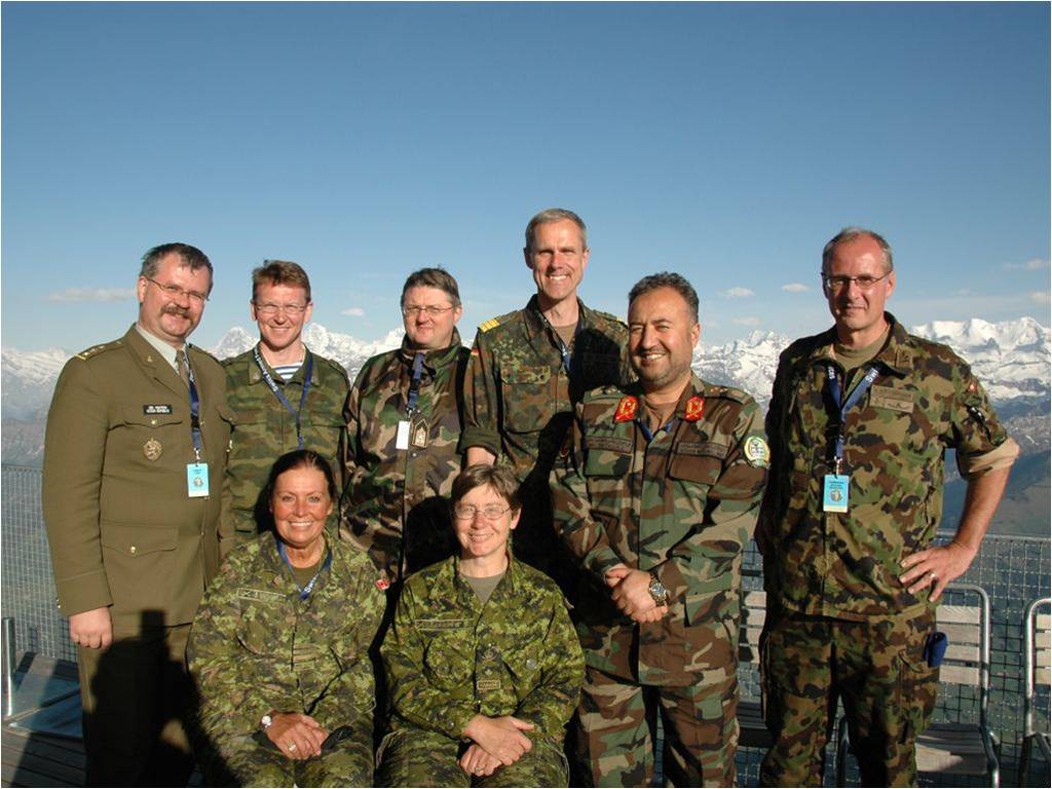FORT SAM HOUSTON, Texas -- The U.S. Army Medical Department Center & School is doing its part to promote international engagement, partnerships and goodwill among accomplished international and U.S. senior level medical officers (0-5 and above) through a unique training opportunity called the Medical Strategic Leadership Program.
The program was initiated by former Army Surgeon General James B. Peake, during his tenure as commander of AMEDDC&S, as a forum for military leaders to prepare for the complex strategic leadership challenges of combined health service support operations.
An added benefit is that attendees develop enduring friendships with military counterparts all over the world.
The MSLP, a course within the Leader Training Center, at the Academy of Health Sciences, was established in order to provide training support that focused on strategic-level military medical leadership health issues, working within coalitions and alliances, with an emphasis on combating terrorism and providing a networking environment for military professionals.
Students, who are handpicked by their countries, have included surgeons general from Afghanistan, Iraq, Moldova, Czech Republic, Philippines, Canada, Mongolia, Romania, and Nepal, as well as a number of deputy surgeons general.
Over 150 countries are eligible to attend under the Department of Defense Security Assistance Program. To date, over 60 countries have sent officers.
According to Ken Knight, director of the MSLP, "many of the international officers come with a negative view of the United States based on CNN, movies and television shows. The MSLP serves as a 'networking tool' that gives these senior officers a "different and very positive image of our country and our military."
The MSLP starts in San Antonio, moves to New York City, and concludes in Washington, D.C.
Major areas of study included during the three-week program are the United Nations, U.S. combatant commands, strategic leadership, international law, military medical readiness, host nation/coalition partner support, health resources allocation and management, non-governmental organizations, Washington-based think-tanks, counter-terrorism, homeland security, military-media relations, and medical observer training.
The first week is for international students only and includes joint and U.S. Army medical policy, medical observation training and tours.
It includes a day trip to Fort Hood, where students meet with III Corps medical leadership and Soldiers who have deployed, see medical simulations training and equipment, and observe firsthand the strides being made in developing an environment focused on the Family.
At the beginning of the second week, students from the U.S. join the rest of the class at AMEDDC&S for strategic-level health care and leadership presentations, including student briefings about their countries.
The last week is spent in New York City and Washington D.C., where students are briefed at the United Nations, the Joint Staff at the Pentagon, by congressional leadership, the State Department, the Veterans Administration, The Surgeon General, and several premier think tanks, such as the Center for Strategic & International Studies, the Heritage Foundation and American Enterprise Institute.
Students have military-media discussions with a major media organization, including outlets like U.S. News & World Report, USA Today and Reuters.
Students visit Mt. Vernon, the Smithsonian museums, the White House, the U.S. Capitol, the national monuments and perform a wreath-laying ceremony at Arlington National Cemetery.
In addition to providing an unforgettable and unique top level educational experience, MSLP attendees are given an opportunity to meet senior military medical leaders from all over the world, conduct open discussions about international relations, share lessons learned, invalidate stereotypical preconceptions, and develop lifelong professional and personal relationships.
U.S. officers interested in participating in the Medical Strategic Leadership Program should contact their Corps chiefs.


Social Sharing